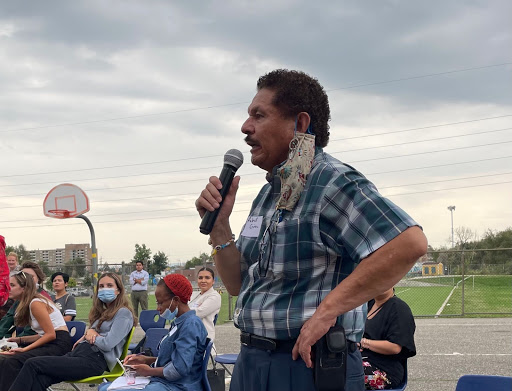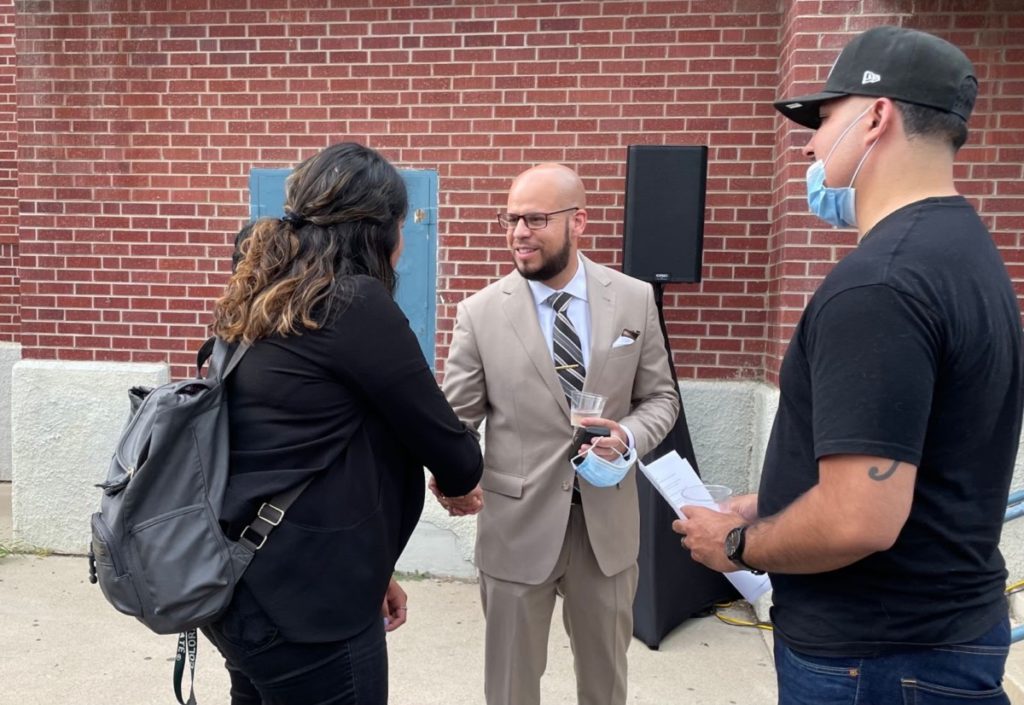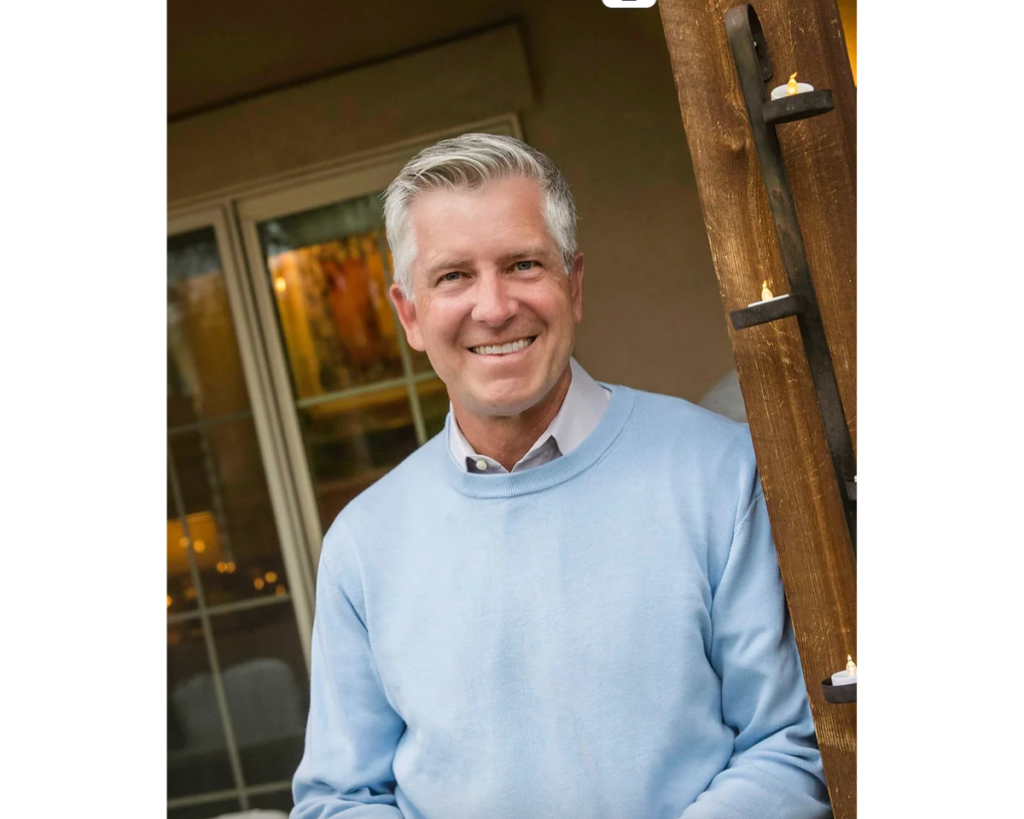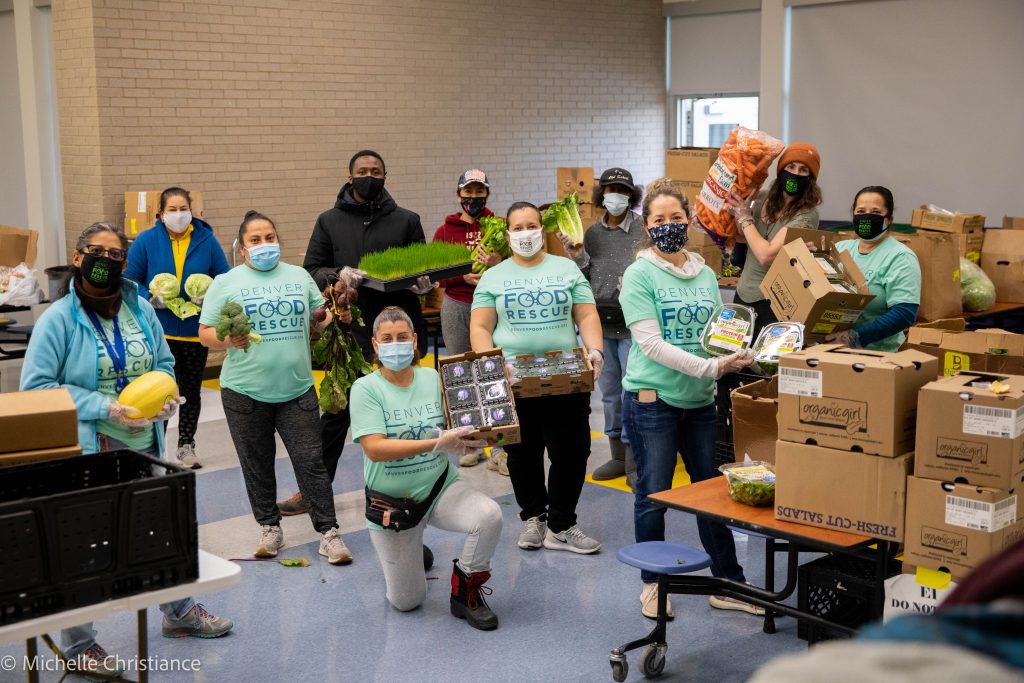Sports. The English language. Mental healthcare. Lunch.
These were among the concerns more than 50 parents of Denver Public Schools students and other education advocates brought to the district’s new superintendent, Alex Marrero, when he met and greeted them at the campus of Kepner Beacon Middle School on Tuesday.
Once Marrero sat down with the parents, DPS faculty and staff, and members of Denver education advocacy groups, TeRay Esquibel, co-founder and director of the DPS alumni organization Ednium, facilitated the conversation.
The first question Esquibel asked the superintendent: “What assumptions have you held that you had to let go in order to get to where you’re at, and how is that going to help you in this job?”
The Bronx-born-and-raised former interim superintendent of the City School District of New Rochelle, N.Y. admitted he at first had doubts about his new environment. He spoke candidly about those doubts and how they’ve been alleviated as he grew more familiar with the Denver community.
“My preconceived notions were, ‘Is this just another gig?’ ‘Is it something to wipe the slate clean?’ ‘Am I going to be seen as the token Latino? A token replacement?’ I had those doubts,” Marrero said. “I can erase that from my mind, because as much as I interact with you all, I realize what you want is stability — someone who’s going to stay the course, not someone who’s going to fly in and fly out.”
When Esquibel asked the superintendent what ‘stay the course’ means exactly, and how he plans to stay engaged with people, Marrero responded with an explanation of his decision-making process.
‘Shared’ decision-making
Marrero’s go-to, he says, is “shared” decision-making. In other words, his first instinct is to reach out to others and put heads together. If a consensus isn’t reached, he moves on to “informed” decision-making. The example the superintendent brought up for this was the face-covering mandate DPS had rolled out the day prior.
Marrero also said he’s going to try to engage with the community intimately, similar to that day’s gathering, naming the strategy his “listening and learning tour.” Students are the top priority, he said as he recalled having weekly meetings with a student advisory council in New Rochelle.
“I’ve gotten a little bit of pushback from some parents who are saying, ‘No, you’re becoming a bureaucrat and a politician because the sign says this,’ and that’s a fair argument,” Marrero said about the mask mandate. “But I am not an elected official … I serve the people.”
It was not long before DPS parents and education advocates had their chance to address Marrero directly.
Joanna Rosa Saenz, a community organizer and mother of three DPS students who received a grant in 2020 to teach her kids and 11 other students in her basement during the COVID-19 pandemic, urged Marrero to consider investing in training and other support for teachers. The “high-impact tutoring” bill she and the advocacy group Transform Education Now managed to get Colorado lawmakers to sign is great, she said, but not enough.
“As a single mother of three children, we need more help. This should not be a bureaucracy where the funds are there, but we can’t support our children or this learning loss,” Saenz said to the superintendent. “I think it’s very important to invest in the teachers. Training.”
Those who met Marrero Tuesday are also looking to see improvement in DPS in the form of two increases: funding for extracurricular activities, namely sports, and time allotted to students and faculty for lunch.
Veronica Carrillo, an education advocate from Montbello, called on Marrero to make both those increases a priority going into his new position. Better quality of school sports and other activities students are interested in would help to promote wholesome values within the schools, she said.
Carrillo also called for reimbursement for extra time teachers have put in as they work to catch students up academically, and increased support for schools’ nursing staff.
“Even us, you know, we are in this fast life, and also we feel that the kids do not have enough time to get lunch,” Carrillo said. “Also … sometimes we go to the nurse’s office and there’s nobody that can help us.”

T. Michael Boddie
Anyone who spoke to the entire crowd at the event typically did so in English. But not everyone in attendance spoke fluent English.
Natalie Perez, a staff member and mother of a student at Rocky Mountain Prep, noticed this.
“I want to talk about language justice,” Perez said, adding that oftentimes parents have not shown up to register their students for school because they did not understand the process. “We live in a community where we have kids coming in from all over the world.”
Perez shifted subjects, emphasizing the importance of mental health for students. Her 10-year-old son, she said, suffered severe anxiety during the pandemic when he was physically out of school.
Now, Perez worries what will happen to DPS kids when they’re suddenly put back into school.
“A lot of kids haven’t been to school in over a year. My son, for example, he’s scared of everything right now … He’s around people and he’s like, ‘Oh my God, I’m scared, should I wear my mask? What should I do?’” Perez said. “And he’s also having a lot of stress not understanding class anymore, and he’s usually a smart kid.”
Perez asked Marrero directly what he would do regarding both English language learning and mental health support, and Marrero said both would be addressed in an upcoming board meeting.
Seeking genuine community engagement
A phrase both Marrero and his new constituents used repeatedly while talking about his future with DPS was “community engagement.” People who heard from the superintendent said they are on board with his idea of “shared” decision-making, but are also keeping a watchful eye to ensure the idea comes to life.
Ariel Elliott, who is with the Professional Association of Colorado Educators and has three children — two currently attending Denver charter schools and a recent graduate of one — said she understands neither Marrero nor any one person can make change overnight that pleases everyone. She also noted how the school board changes relatively often, which is out of the superintendent’s control.
But it’s possible to bring about the changes people are calling for if Marrero stays in tune, she said.
“There’s been so much misconception, so much mistrust, throughout the years at DPS, and we just want to see that shift,” Elliott said. “You have to get ingrained, you have to participate, you have to hear the hard feedback … You can’t lead a community from behind your desk.”
Another engagement strategy Marrero hopes to employ is building what he calls a “transition team:” a group of people who apply and are accepted to act as community representatives—unofficial advisors—to help the superintendent get a clearer picture of what concerns people with a stake in the 93,000-student school district. He encouraged those attending to join this team.
Robert Giron, who serves on the DPS budget advisory committee, had three children graduate from Lincoln High School and has one child attending KIPP Denver Collegiate High School.
“I see a commitment within DPS and the staff that hasn’t let me down,” Giron said. “The commitment is there, but we have to go ahead and take that commitment to the next step of quality and equal education.”




